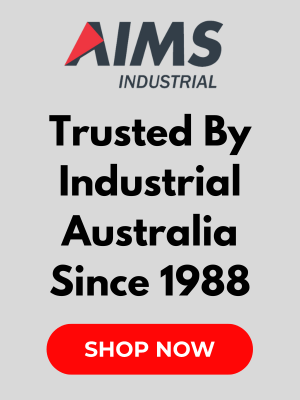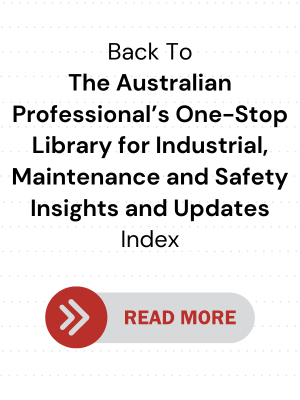How to Identify High Tensile Bolts

.png)
(Taken from this post by Champion Parts. Republished with permission. Edited for point of view and relevance.)
High tensile bolts are used in applications where durability is critical to firmly and safely hold components together.
A common example would be in an automotive system, where high tensile bolts:
- Hold together the linkages of the suspension system; or
- Attach the brake calipers to the knuckles
Getting this right is important for obvious reasons: safety, reliability and the longevity of components.
This excerpt from Champion Parts might point you in the right direction.
Disclaimer: AIMS is not an expert in fastener design, therefore the information provided herein should not be treated as professional advice. The official source is cited.
Read the head markings
The markings on the head face of a bolt can be confusing. How do we specify the grades between each pattern and make sure you get the correct size?
1. Check if there are any head markings. They will indicate if the bolt is metric or imperial and the grade/class.
.png)
2. Look at the threaded part of the bolt/setscrew and identify if it is a fine thread or coarse thread. Using a vernier, measure the diameter of the threaded part of the bolt/setscrew, as shown in Fig. 1.
3. Use a pitch gauge to determine the pitch of the thread, as shown in Fig. 2.
4. Using a ruler, measure the length of the fastener from under the head, as shown in Fig. 3.
.jpeg)
Corrosion protection
A popular option to avoid corrosion is zinc plating, where a metal bond is formed between the steel and the zinc, which serves as a protective layer.
Zinc-plated fasteners are ideally used in dry environments. Otherwise, stainless steel fasteners may be a better option.
Colour

The colour of the fastener is determined by a pigment additive during the electroplating process. That is why some fasteners appear to be gold (yellow-ish) or silver (clear) in colour.
They do it just to enhance the appearance of the fastener.
It does not have anything to do with durability.
Feedback: Ken H from Perth shared his experience with high-tensile bolts:
"So many people doing restoration have the "stainless is the be all end all" ethos. Definitely not so.
I am on my second old motorcycle rebuild (previous 1963 BSA, this one 1974 Triumph). All the low load bearing fasteners are/will be stainless ("tinware", ie mudguards etc), but anything load bearing/frame/eng mount - all high tensile, they HAVE to be.
In the late 70's the [ship 1 redacted for confidentiality] had a new radar antenna fitted. The rest of the fleet had the same radar fitted, but kept the old antenna; [ship 2 redacted for confidentiality] got the "new/updated" one.
These antennas weigh a couple of tons, are over 20 feet wide, and are subject to extreme stress as the ship rolls. At the mast head, they are at "the end of the pendulum", so stresses exaggerated. You can see one at Darling harbour aboard museum ship HMAC Vampire.
They are held down by a base ring with about 20 in number 3/4 high tensile bolts.
I have been on ships and gone through cyclones with those same antennas. They are designed for it.
Anyway, the [ship 2 redacted for confidentiality] had the new antenna for about a month; when she returned after going through a storm, and it just 'sheered off the bolts and fell over the side.' She had to go back to the old one. The story was they used stainless bolts instead of the high tensile that always required painting. Either that, or incorrect tensile grade/not torqued to correct amount.
Luckily it fell away from the flight deck - no one hurt.
But yes - high tensile bolt selection IS a big deal."
AIMS’ Note on Buying Industrial Supplies
- Breadth and depth of brands and categories: Go with a supplier that offers a wide range of reputable brands across multiple categories and sub-categories.
- Bulk purchase discounts: For large orders, check if you can take advantage of volume leverage. Some suppliers offer business accounts* that give you access to special pricing (volume discounts), preferential support and even credit eligibility (subject to supplier approval, terms and conditions).
- Product and service information: Evaluate the completeness and usefulness of data in their online product listings. Prudent suppliers will include as much useful information as possible to help you assess and compare products. In terms of service info, the supplier’s FAQs (if any) will give you a good idea of their standard policies*, processes and commitments.
- Promotions: Check for ongoing promotional campaigns so you can get the best prices. Many suppliers run regular discount-based promos. Some can point you to government-hosted rebate programmes like the SafeWork NSW $1000 Small Business Rebate.
- Safety compliance: Make sure the product in question meets Australian safety standards and regulations, especially if there are relevant compliance requirements or work health and safety (WHS) laws that apply to your business or state. Look for relevant certifications and markings where necessary.
- Supplier reliability: Choose reputable suppliers with a proven track record of delivering quality products and reliable customer service.
- Warranty and support: Check warranty terms and after-sales support* options, as this can be crucial in case of product defects or performance issues.
- Lead time and availability: Confirm product availability and estimated delivery times to avoid delays in your projects.
- Returns: Familiarise yourself with the suppliers returns and exchange policy in case you receive incorrect or damaged items.
- Delivery: Clarify delivery terms, including estimated delivery times, shipping costs and who handles insurance during transit (where applicable).
*Need help with a purchase decision? Contact us directly via chat or send an email to sales@aimsindustrial.com.au.



.png)